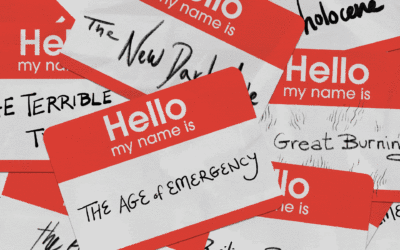from the World Economic Forum….As we enter 2024, 2023-2024 GRPS results highlight a predominantly negative outlook for the world over the next two years that is expected to worsen over the next decade
Embracing local knowledge is the key to resilience in northern Kenya, not project box-ticking
by Ian Scoones in The New Humanitatian…‘In the welter of jargon-heavy policy documents promoting ‘resilience-building’, the big question remains – what is ‘resilience’, and for whom?’
How Octavia Butler told the future
by Tiya Miles in The Atlantic…We need her conception of “histofuturism” now more than ever.
Why the world needs its own immune system
by Atul Gawande in The New York Times…A global immune system must be built for speed. Speed in detecting that a pattern of illness might be unusual and dangerous. Speed in diagnosis. Speed in alerting public health officials and tracing the path of exposure. Speed in getting treatment to the sick and preventive measures to the well.
An ancient Chinese text that’s surprisingly relevant today
by Richard Heinberg in Resilience.org….I’ll leave the last words to the Old Master, this time from the Bahm translation:
Whenever someone sets out to remold the world, experience teaches that he is bound to fail.
For Nature is already as good as it can be.
It cannot be improved upon.
He who tries to redesign it, spoils it.
He who tries to redirect it, misleads it.
Visualizing the top global risks in 2024
from the World Economic Forum….From a broader perspective, key structural forces are influencing global risks looking ahead. They include technological acceleration, climate change, shifts in geopolitical power, and a widening demographic divide.
A year in crises
by Tim Sahay in Phenomenal World…https://www.phenomenalworld.org/analysis/a-year-in-crises.
The terrible twenties? The assholocene? What to call our chaotic era
by Kyle Chayka in The New Yorker…There is something paradoxical about pinning a name on an age characterized by extreme uncertainty. But that hasn’t stopped people from trying.
Food shortages ‘alarmingly likely’ in the UK next year
by Madeleine Ross in The Telegraph….Warning that global conflicts and climate change will lead to empty shelves
WEP2018 TV: Energy, money and technology – From the lens of the superorganism
During Nate Hagens’ #WEP2018 keynote, he will discuss how all of our lives will be influenced by how we react to the coming era of harder to extract and more costly fossil fuels that will be combined with cleaner but more stochastic energy types.



